45 cheese its nutrition
11 Health Benefits Of Cheese, Different Types, Tips, & Recipes - STYLECRAZE According to the United States Department of Agriculture, (USDA) 100g of cheese contains ( 1 ): Energy - 362 kcal Protein - 5.17 g Carbohydrate - 50 g Calcium - 69 mg Sodium - 181 mg Saturated Fatty acids - 3.45 g Cholesterol - 34 mg It is a rich source of protein, vitamin A, vitamin K, and calcium. What's the Healthiest Cheese to Eat? 8 Types of Healthier Cheese Cheese is rich in nutrients, including protein, amino acids, fatty acids, vitamins, and minerals. However, some cheeses are also high in calories, trans and saturated fats, and sodium, meaning that eating too much can increase your risk of obesity, heart disease, diabetes, and even certain types of cancer.
› nutrition › is-blue-cheese-moldIs Blue Cheese Moldy, and Can You Eat Moldy Blue Cheese? Sep 23, 2020 · Blue cheese is made using Penicillium, a type of mold that’s responsible for its unique taste, smell, and appearance. Unlike other types of mold, Penicillium does not produce toxins and is safe ...
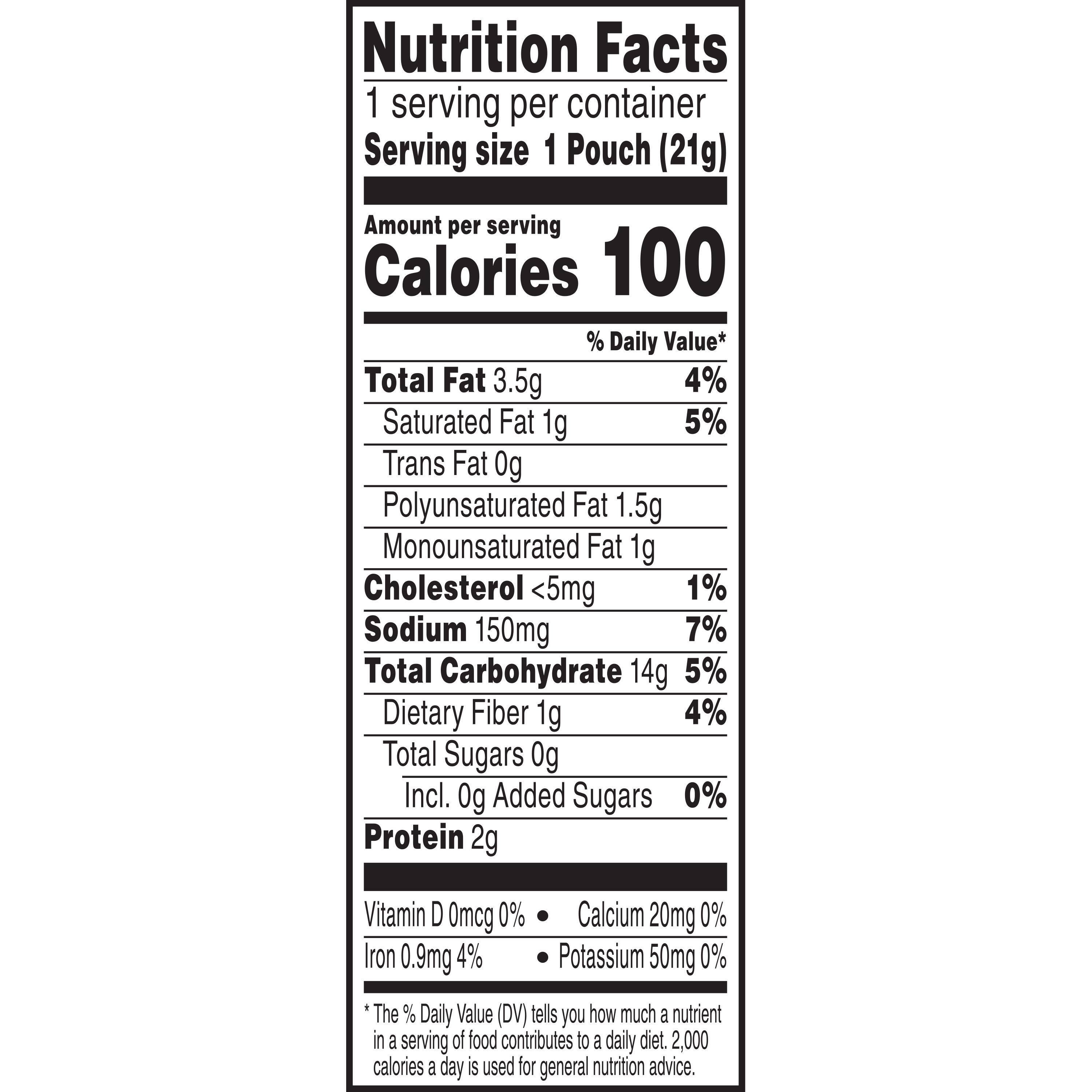
Cheese its nutrition
How To Make Cow's Cheese And What Are Its Benefits After milking the cow, strain through a sieve or cheesecloth. Then heat to 40 degrees. Dilute the rennet yeast with lukewarm water in a glass. Stir and set aside for a few minutes, then pour into the milk, stirring constantly. Leave to stand for 1-2 hours at a temperature of about 20-30 degrees, then pour the separated liquid and cut the cheese ... Swiss Cheese: Nutrients, Benefits, Downsides, and More - Healthline Swiss cheese offers minerals like zinc and phosphorus, as well as vitamins A and B12. It's particularly high in protein and calcium. Swiss cheese health benefits Swiss cheese contains a variety of... 5 Health Benefits of Cheese | EatingWell One major finding was that eating nearly 2 ounces of cheese daily (1 ounce equals a 1-inch cube) was associated with an 18 percent lower risk of heart disease. Writing in the British Journal of Nutrition, the authors propose that minerals like calcium, potassium and magnesium and vitamins like riboflavin and B12 may play a role.
Cheese its nutrition. The Chilling Truth About Nutritional Yeast - Living Natural Today Although nutritional yeast is an excellent alternative to parmesan cheese, unfortunately, it is not the healthiest or safest substitute due to the following reasons: 1. It has mold toxins. Since yeast is a type of fungi, it may contain mold toxins. When you consume too much yeast, a yeast-like fungus called Candida albicans may grow in your body. Is Mozzarella Cheese Healthy? Here's What a Dietitian Says Lower sodium than other cheese. If you are trying to reduce your intake of sodium, mozzarella might be the way to go. Compared to the same serving size of feta and parmesan, mozzarella has nearly 50 percent less sodium, with 175 milligrams of sodium per serving. This is roughly eight percent of the daily recommended intake of 2,300 milligrams ... Eat This, Not That!: The Cheese Guide | Eat This Not That In fact, cheese is actually quite nutritious: It's full of protein, healthy fats, bone-building calcium, vitamins A and B12, and minerals like zinc and phosphorus. But not all cheeses are created equal. How Bad Is It Really to Eat Cheese Every Day? | livestrong Cheese provides protein, calcium and vitamins. But it can also be high in sodium and saturated fat. So is it bad to eat cheese daily? Dietitians explain. ... That said, "recent research suggests that the positive nutrition implications of cheese may outweigh — or at least neutralize — the negatives associated with cheese's high-fat content ...
How Long Does Cheese Last in the Fridge? - Healthline hard. 3-4 weeks. Hard cheeses last 3-4 times longer in the fridge than soft cheeses since they contain less moisture and are therefore less prone to spoilage from bacteria ( 1, 2 ). Generally ... How Much Cheese Can We Eat a Day? - Step To Health The main nutritional components of cheese are: Vitamins A, D, and B12 Minerals such as calcium, phosphorus, zinc, and magnesium Proteins of high biological value, with all the essential amino acids Saturated fat and cholesterol Is Cheese Healthy? We Asked Dietitians - Parade: Entertainment, Recipes ... Another benefit of eating cheese is that it's a good source of calcium, phosphorus and vitamin D, which Simon says all directly support bone health. Calcium is also important for muscle and... Keto Diet and Cheese: The Best and Worst Cheeses to Choose For that reason, certain foods are better suited for the keto diet than others. In particular, cheese is an ideal keto food due to its high fat, moderate protein, and low carb content. This article reviews some of the best and worst types of cheese to eat when following a keto diet.
Why Is Cheese So High In Calories Its Mostly Fats One cup of shredded cheddar cheese contains about 100 percent of the daily recommended intake of calcium, vitamin B12, riboflavin, niacin, phosphorus, potassium, magnesium, zinc, iron, copper, manganese, selenium, iodine, thiamine, folic acid, pantothenic acid, biotin, and vitamin D. What's the healthiest cheese? The best options, according to experts High in protein, calcium, vitamins and essential amino acids, cheese is also a calorie-dense food, and can be high in fats and sodium. "If you enjoy cheese and you like it, it could be a good... Friday Favorites: Is Cheese Harmful or Healthy? Compared to What? Everything we eat has an opportunity cost. Every time we put something in our mouths, it's a lost opportunity to put something even healthier in our mouth. Just because study is industry-funded doesn't necessarily mean it's bad science, though. Check out How the Dairy Industry Designs Misleading Studies. Here is the series I mentioned in ... › articles › healthiest-cheeseHealthiest cheese: Low calorie, low fat, high nutrition Mar 08, 2021 · Gas bubbles, produced by bacteria that help to turn milk into cheese, form all over the cheese and create its characteristic holes. Swiss cheese is a low-calorie cheese, as it only takes up 4% of ...
› nutrition › american-cheeseAmerican Cheese: Ingredients, Nutrition, Benefits, Downsides American cheese is a high calorie, high fat, and high sodium food. However, it also provides high quality protein, vitamins, and minerals, such as vitamins A and D, phosphorus, calcium, and zinc....
› recipe › 8379Basic Cream Cheese Frosting Recipe | Allrecipes Nutrition Facts . Per Serving: 292 calories; protein 1.5g; carbohydrates 40.4g; fat 14.3g; cholesterol 41.1mg; sodium 110.9mg. ... If you can get the cream cheese on ...
How to Make Homemade Cheez-Its + Step-by-Step Photos - Taste of Home Swap the cheddar cheese for your favorite vegan cheddar cheese and add 1-2 tablespoons of nutritional yeast for extra tangy flavor. Then, opt for 4 tablespoons of your favorite vegan butter (like Earth Balance) or olive oil instead of butter. Prepare and bake as directed in the original recipe How Do You Store Homemade Cheez-Its?
Is Cheez Its Healthy? - Healthyfoodforliving.com Cheez-Its contain an insignificant amount of essential minerals, like Potassium, just 30 milligrams. It also packs a minimal quantity of dietary fibers, just 0.5 grams. The crackers also accommodate a minuscule protein of just 3 grams per serving. But only lack of good minerals does not contribute to it being this unhealthy.
› nutritionsource › cheeseCheese | The Nutrition Source | Harvard T.H. Chan School of ... The European Prospective Investigation into Cancer and Nutrition – Netherlands Cohort (EPIC-NL) of 34,409 Dutch men and women found that bacterial fermented foods were not associated with decreased deaths from all causes with the exception of cheese. Cheese was associated with a decreased risk of death from CVD, particularly strokes. [6]
How Many Calories In Cheese Its - CheeseProClub.com One cup of shredded cheddar cheese contains about 100 percent of the daily recommended intake of calcium, vitamin B12, riboflavin, niacin, phosphorus, potassium, magnesium, zinc, iron, copper, manganese, selenium, iodine, thiamine, folic acid, pantothenic acid, biotin, and vitamin D.
› types-of-cheese34 Types of Cheese From Around the World - Nutrition Advance Aug 20, 2018 · While the cheese is quite strong and flavorful, it isn’t quite as sharp as other blue cheese varieties, and it has a more mellow taste. The cheese has some interesting nutrition benefits, and it is an excellent source of vitamin K2. Stilton provides large amounts of dietary fat and protein, and it contains 393 calories per 100 grams .
The Ultimate Guide to Cheese Nutrition: How 15 Favorites Stack Up Protein : 8 g, 16% DV. Vitamin A : 199.9 IU, 7% DV. Calcium : 199.9 mg, 15% DV. Jarlsberg nutrition facts show that the cheese, like other types, delivers calcium: Just 1 ounce satisfies 15 percent of your daily calcium needs. If you have lactose intolerance, you may be able to enjoy a slice of Jarlsberg.
Which Cheeses Are Lowest in Cholesterol and Fat? - Verywell Health One cup of cottage cheese contains 6 grams of saturated fat, while one cup of shredded cheddar cheese contains about 24 grams of saturated fat. Low-fat and fat-free versions of most popular types of cheese are widely available in supermarkets. In many cases, low-fat cheeses contain half as much saturated fat as their whole-fat counterparts.
› feta-cheese-nutritionFeta Cheese 101: Nutrition Facts and Benefits Jun 23, 2020 · This Greek cheese has enjoyed popularity in Europe for centuries, and it has a distinctive taste. Compared to other famous cheese varieties, Feta has a unique nutritional profile too. This article provides a complete guide to Feta cheese and its production process, nutritional values, how to use it, and more. What Is Feta Cheese?
Is Cheese Bad for You? Benefits, Risks, Nutrition Facts - Healthline Cheese is a great source of calcium, fat, and protein. It also contains high amounts of vitamins A and B12, along with zinc, phosphorus, and riboflavin. According to U.S. Dairy, the overall...
Is Vegan Cheese Healthy? - stack A 1/4 cup of Sargento Shredded Mozzarella contains 80 calories, 5 grams of fat, 3.5 grams saturated fat, 15mg cholesterol, 180mg sodium, 2 grams total carbohydrate, 0 grams dietary fiber, 0 grams ...
10 Amazing Health Benefits Of Blue Cheese - STYLECRAZE Blue cheese can provide a number of essential vitamins and minerals, including vitamin A, vitamin D, potassium, sodium, and zinc ( 4 ). In other words, it plays an important role in preventing diseases by providing us with a strong immune system. 9. Anti-Cellulite: Blue cheese has got the anti-cellulite property.
8 Awesome Health Benefits of Cheese & Its Nutritional Value Awesome health benefits of cheese and it's nutritional values. Good for maintaining weight; The dairy product contains good bacteria. Good bacteria is necessary to boost metabolism and also digestion. Many variants also contain butyrate. Butyrate is also known to boost the metabolism in human body.
🧀 13 Fun Facts about Cheese - Fact City 9. Curd size matters. A large curd will create a soft cheese whilst a small curd will produce a much harder cheese. Hard cheeses last much longer than their soft counterparts. 10. Cheese makes bread. A 'cheesemonger' is someone who sells cheese for a living. 11. There's more to cheese than you think!
Keto Diet and Cheese: The Best and Worst Cheeses to Choose - Healthline A 1-ounce (28-gram) serving provides 9 grams of fat, 7 grams of protein, and minimal carbs, making it an excellent cheese to enjoy when following the keto diet ( 3 ). While not particularly good...
5 Health Benefits of Cheese | EatingWell One major finding was that eating nearly 2 ounces of cheese daily (1 ounce equals a 1-inch cube) was associated with an 18 percent lower risk of heart disease. Writing in the British Journal of Nutrition, the authors propose that minerals like calcium, potassium and magnesium and vitamins like riboflavin and B12 may play a role.
Swiss Cheese: Nutrients, Benefits, Downsides, and More - Healthline Swiss cheese offers minerals like zinc and phosphorus, as well as vitamins A and B12. It's particularly high in protein and calcium. Swiss cheese health benefits Swiss cheese contains a variety of...
How To Make Cow's Cheese And What Are Its Benefits After milking the cow, strain through a sieve or cheesecloth. Then heat to 40 degrees. Dilute the rennet yeast with lukewarm water in a glass. Stir and set aside for a few minutes, then pour into the milk, stirring constantly. Leave to stand for 1-2 hours at a temperature of about 20-30 degrees, then pour the separated liquid and cut the cheese ...

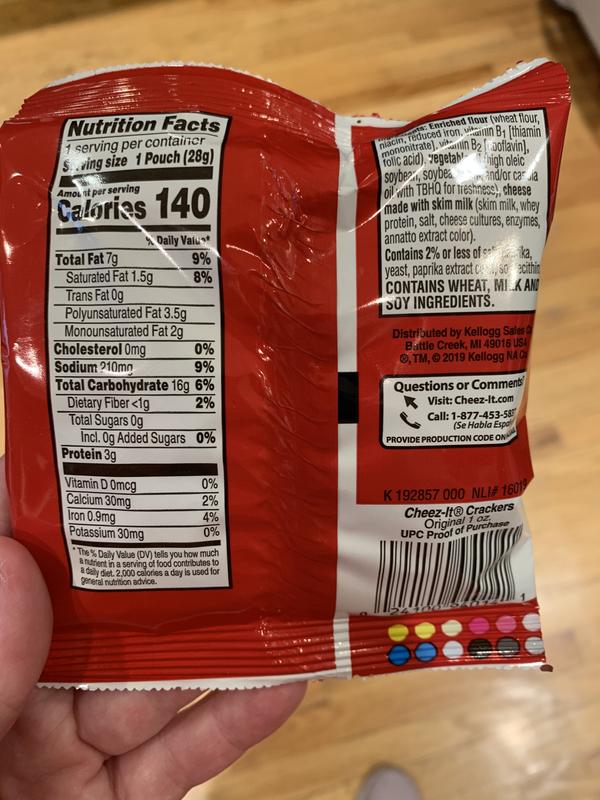
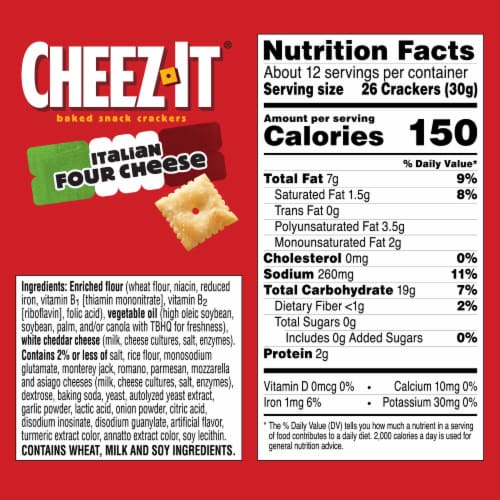





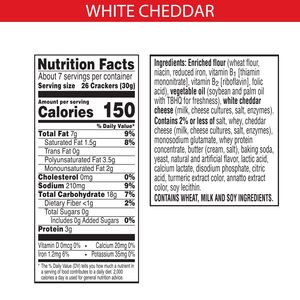
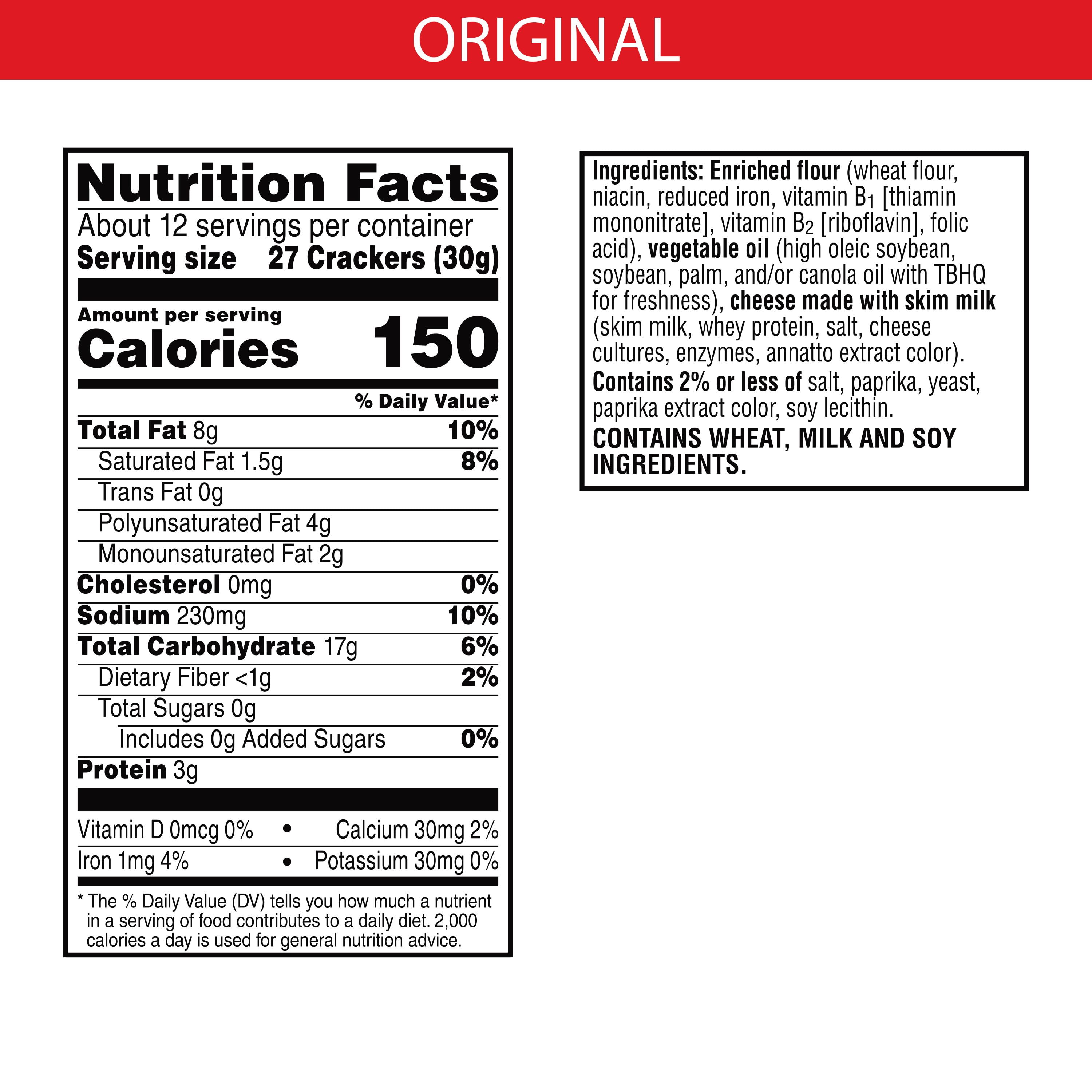


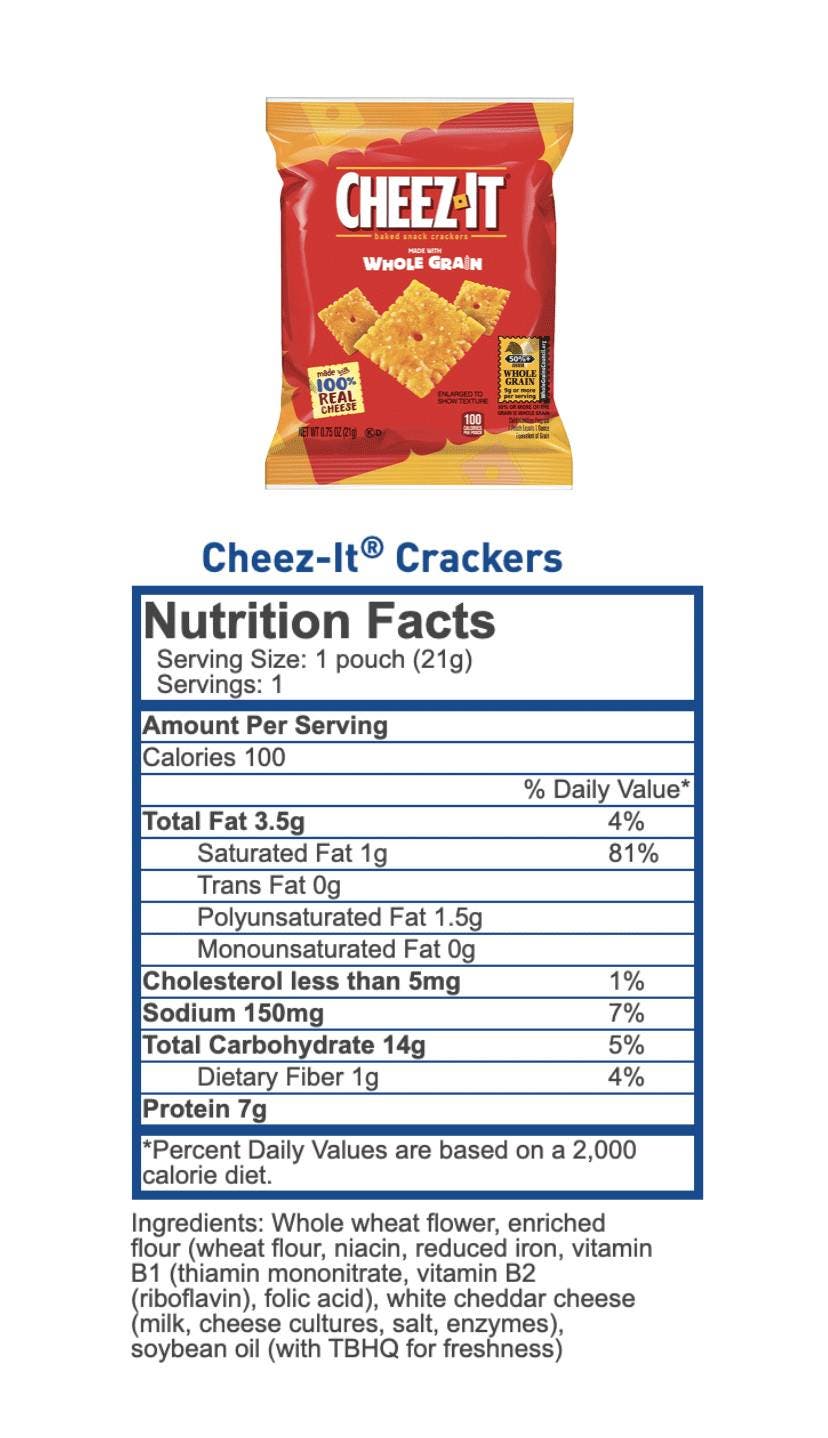



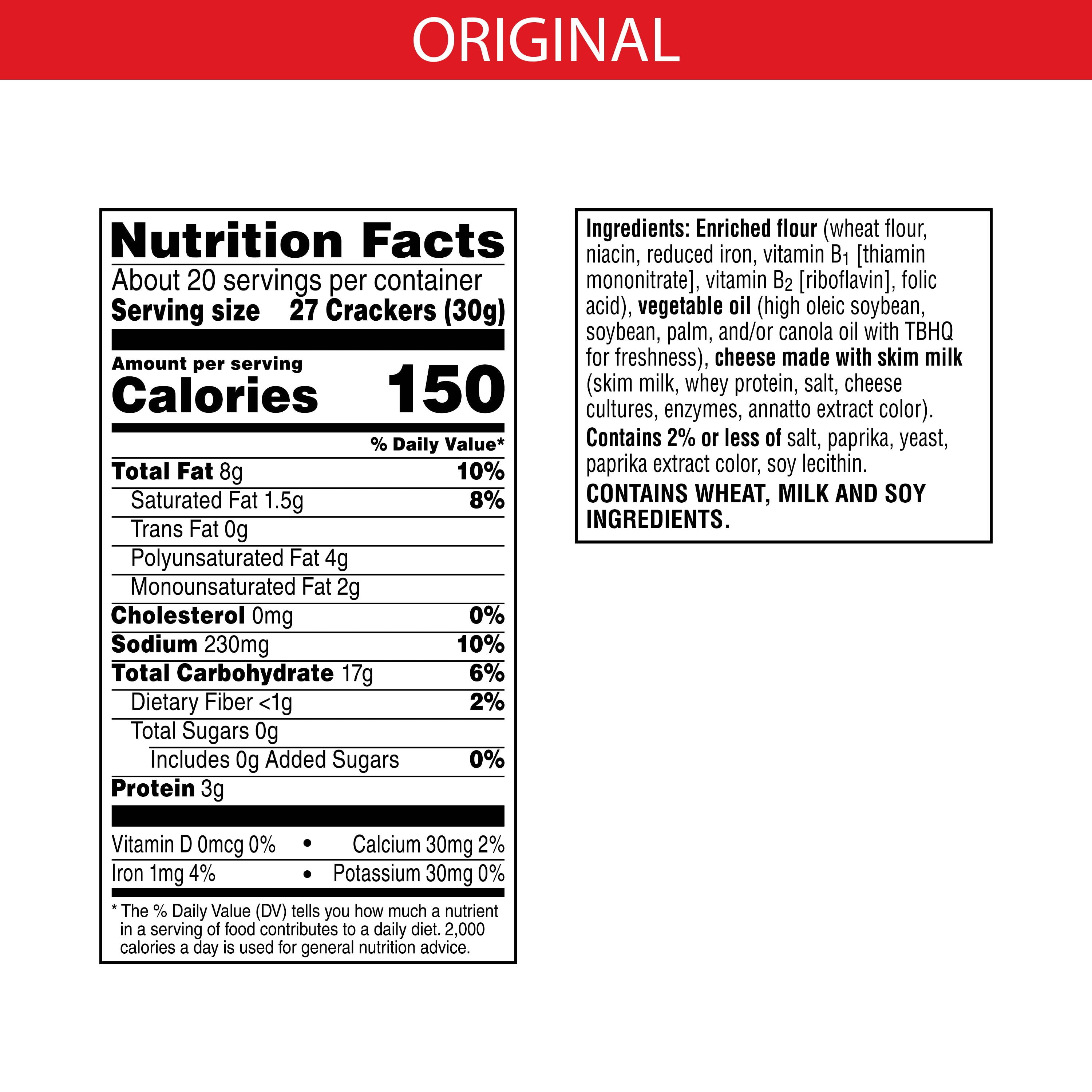

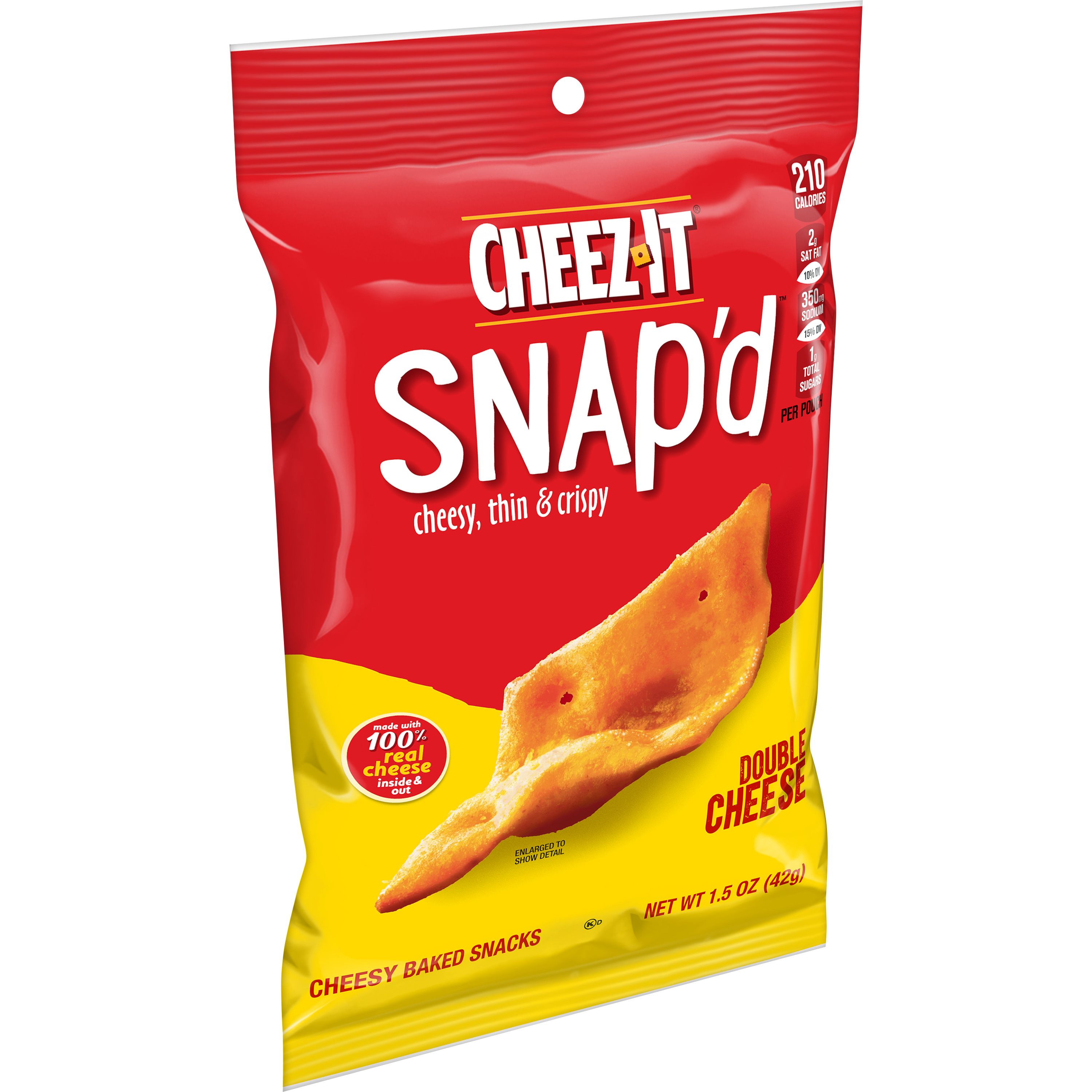

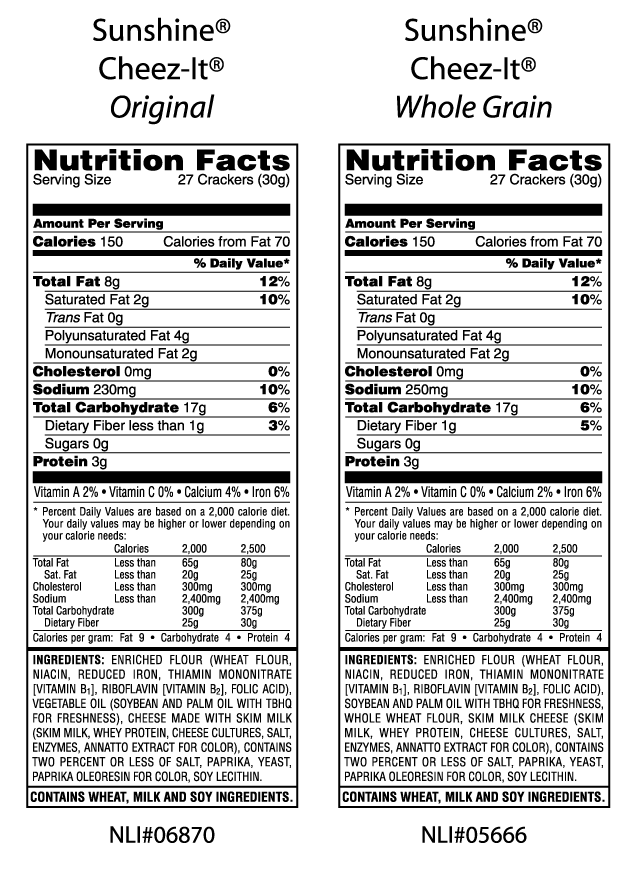


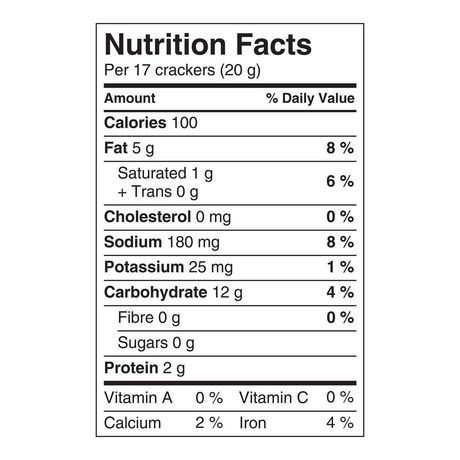
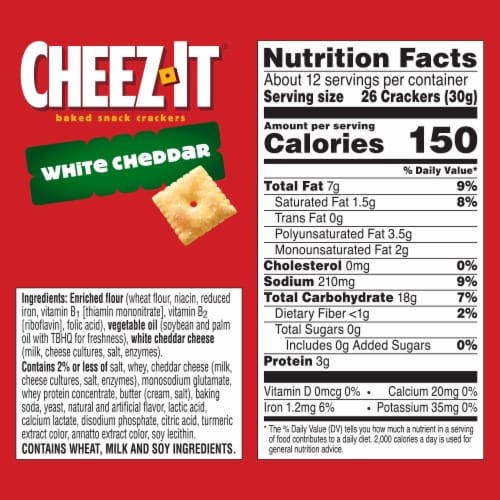

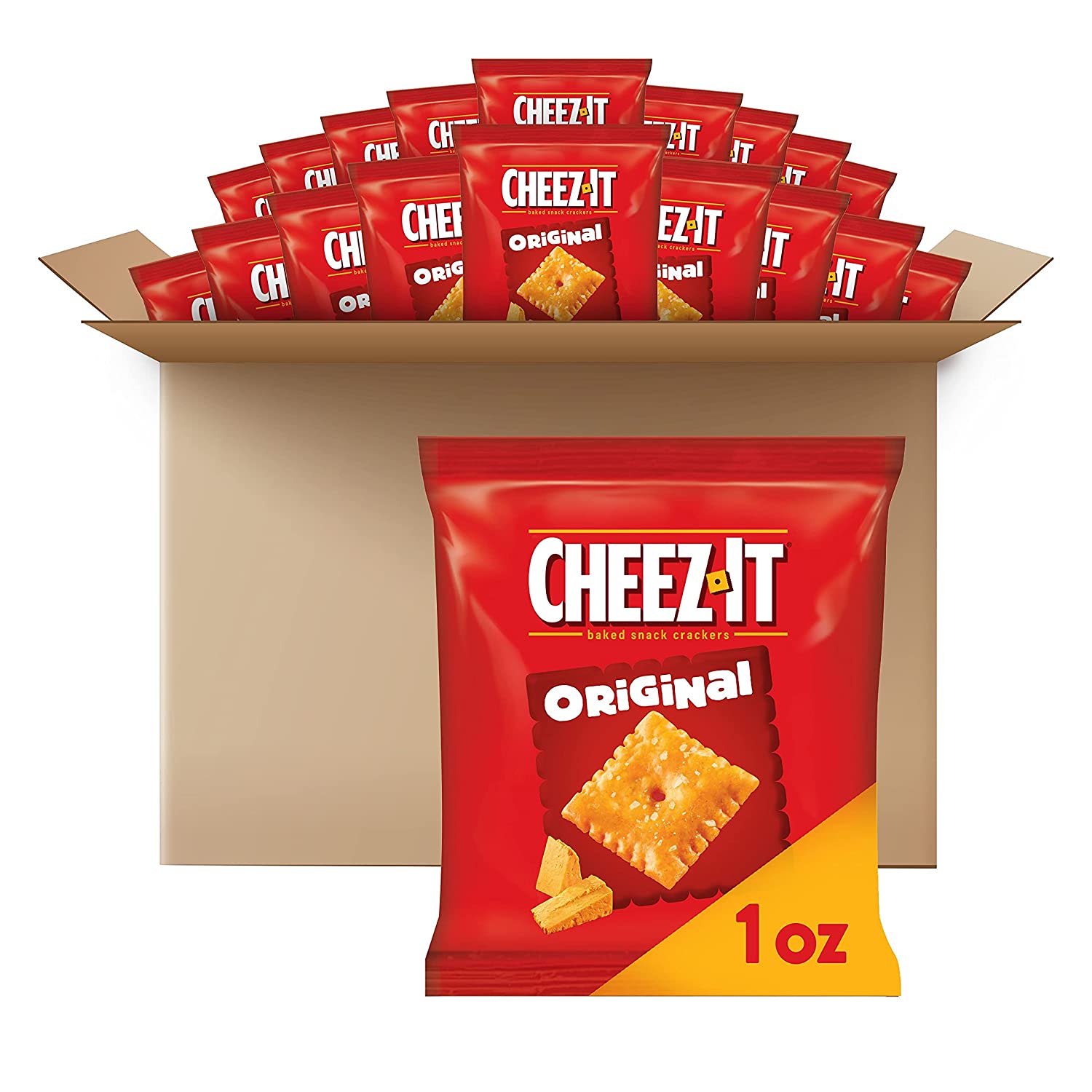


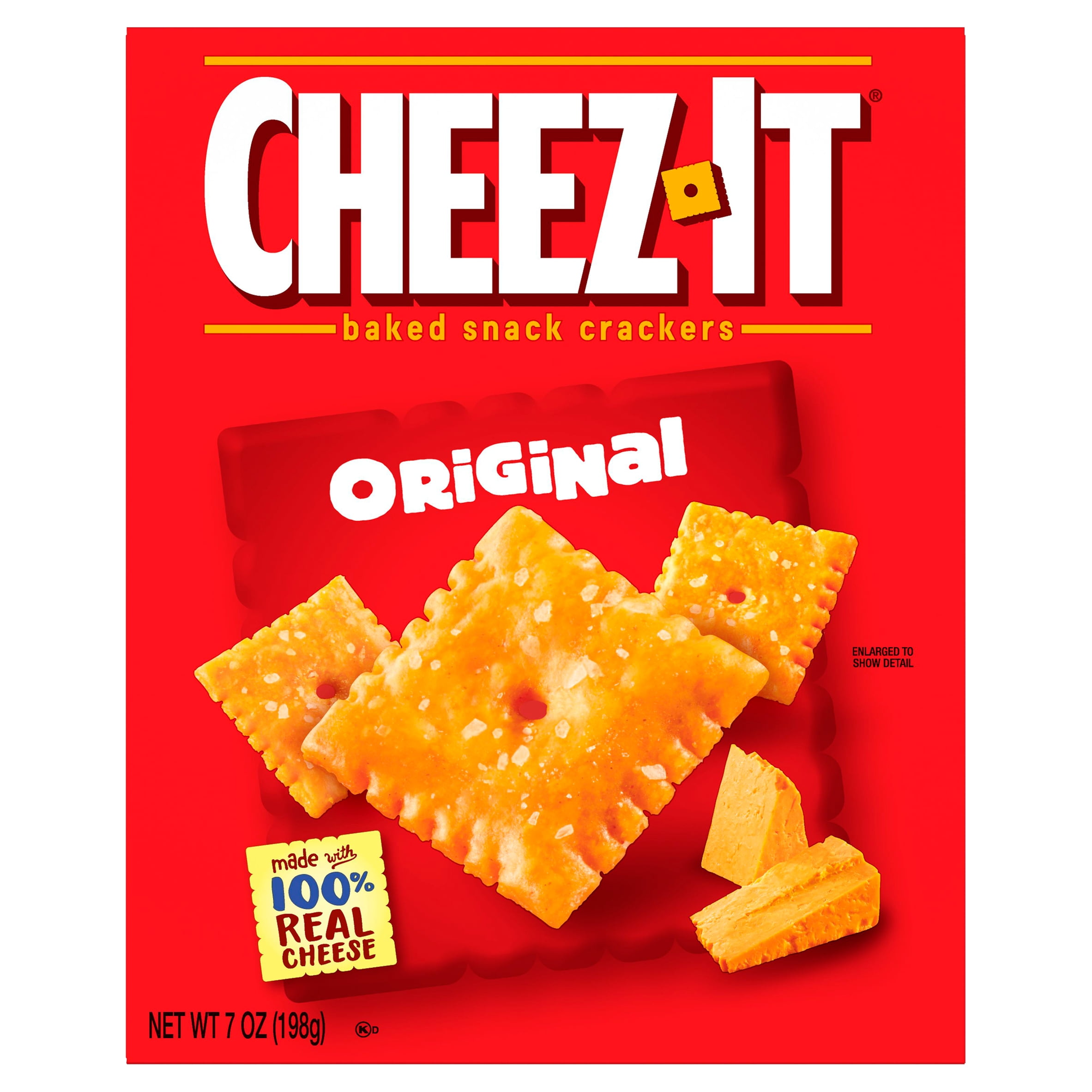




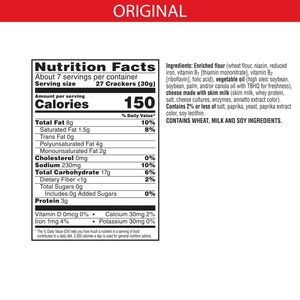
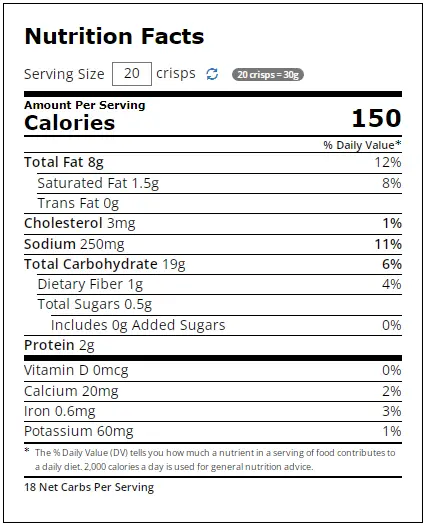

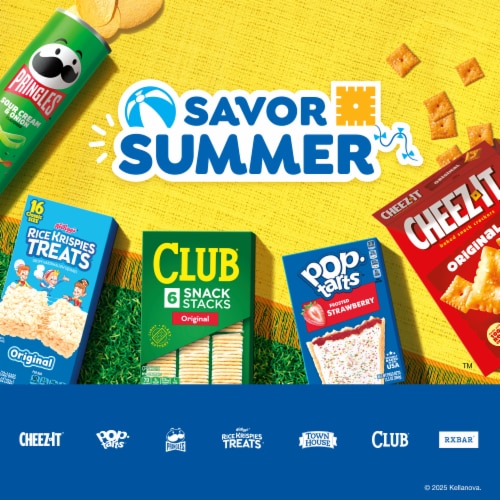
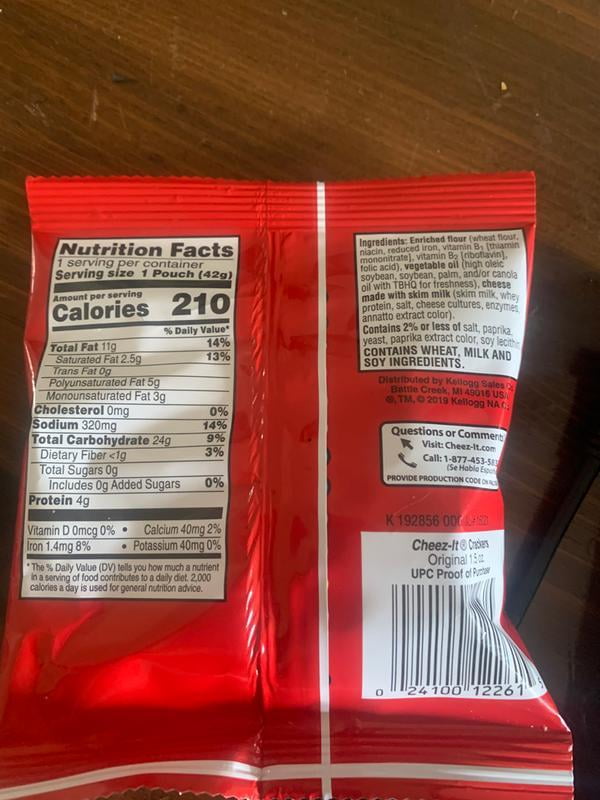
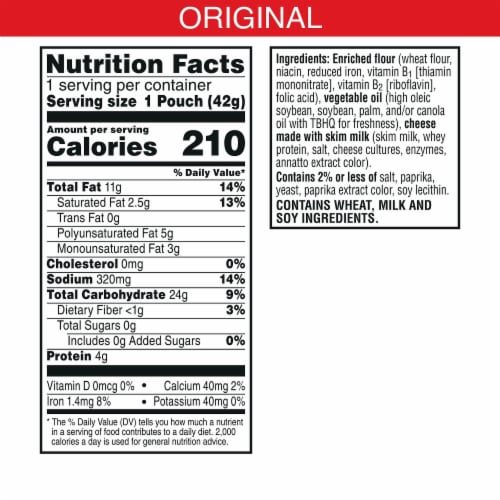
Post a Comment for "45 cheese its nutrition"